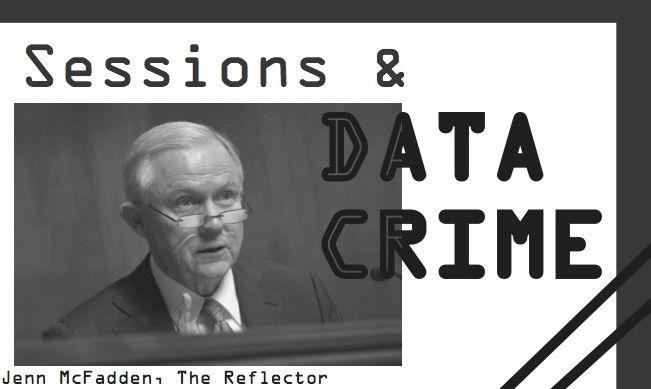It is a good thing Jeff Sessions did not take my exams these past few years in Criminology. If he had, I think Sessions would have had a little trouble getting through questions concerning accurate crime data.
Before I continue any further, I want to make it clear that my main grievance discussed in this article is not directed at Session’s political ideology, which may differ from my own. Rather, my main objection is to an administration that seems to find discontentment with evidence based data.
While there are certainly many points of contention to make on the functioning of this new administration, I am continually stunned by individuals like Jeff Sessions and their rejection of facts.
The office of the United States Attorney General is tasked with representing the United States in legal matters, serving as a legal advisor to the president and heads of departments and overseeing various administrations such as the Department of Justice and FBI. Jeff Sessions served as Alabama’s attorney general and then as a U.S. Senator in 1996 before being appointed as the nation’s attorney general.
In a speech given shortly after he was sworn in as U.S. Attorney General, Sessions said he believed the recent uptick in crimes was evidence of a “dangerous permanent trend.”
However, according to a member of the Justice Department’s Science Advisory Board, “Jeff Sessions is the first person who suggested this is a permanent trend.”
This same board member, Jerry Ratcliffe, said not only did he find Sessions’ remark to be inaccurate, but he did not think anyone from a data perspective could agree with it either.
While murders in the U.S. did rise by 10.8 percent in 2015, a former Attorney General notes in a speech this year still remains as the “third lowest year for violent crimes in the past two decades.”
Because these upticks are recent and have not reversed the general decrease in crime since 1991, it is reckless to base far-reaching policy changes on crime rates that do not demand it.
Not only are Sessions’ accounts of crime statistics misleading, his recent actions to dismiss partnerships with the Justice Department are extremely troubling.
In 2013 Barack Obama established boards such as the National Commission on Forensic Science to examine the many problems with forensic science and trial evidence throughout the country, for the purpose of establishing recommendations to prevent wrongful convictions.
In addition to this board, another was established to review practices of expert testimony as a result of learning many FBI experts’ testimonies included misleading information. However, Sessions decided there was no longer a need for these partnerships to continue.
It is troubling too that the new attorney general would so blatantly reject a body conducting research that is an integral component of ensuring fair trial practices throughout the country.
For many people in the U.S., the new Attorney General’s misrepresentation of crime rates and his shift away from research providing insight into problems within our judicial system may seem small in the grand scheme of things. However, his disregard for substantial amounts of literature that disagrees with these views could be detrimental to society.
The Sentencing Project states the prison population in the United States experienced a 500 percent increase over the past few decades, which is a result of “tough on crime” rhetoric, much like the rhetoric used by Sessions in his discussions of spiking crime.
We are still struggling with the consequences of mass incarceration. The last thing our country needs is a shift away from evidence-based policy approaches and the rejection of bodies conducting imperative forensic research.






